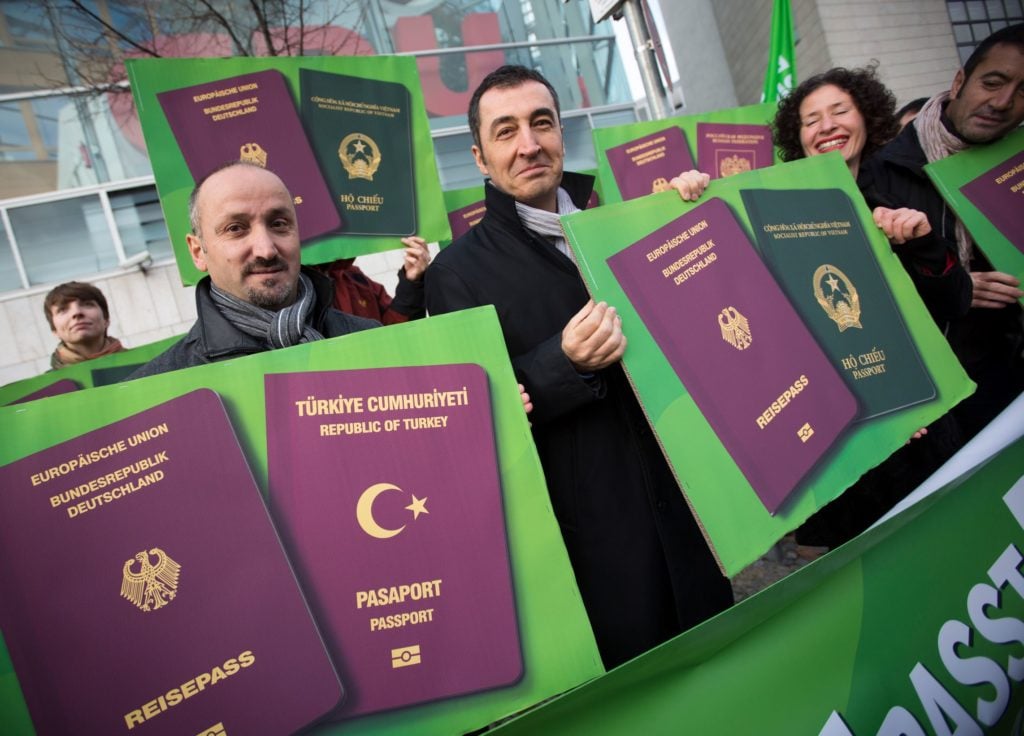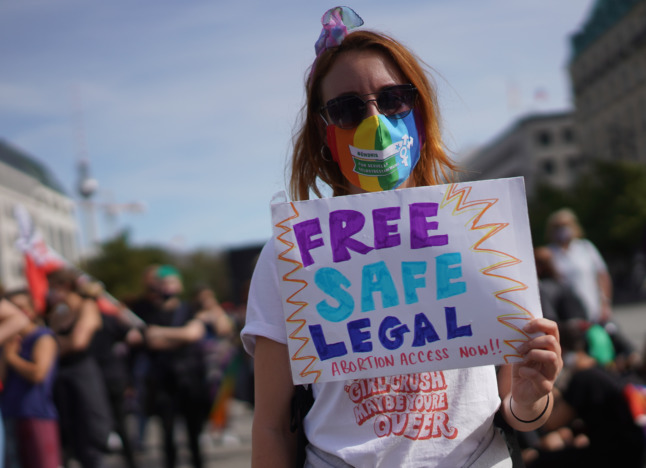“It was pleasant, I have to say. It brings back pleasant memories,” the Health Minister said, describing his own experience with smoking marijuana.
His Heute Show interviewers Fabian Köster and Lutz van der Horst then got a little serious for a second. “But, in the beginning, you were against legalisation?”
“That’s correct,” Lauterbach responded matter-of-factly. “But the safety and security aspects of legalisation have changed in the last years, in my opinion. I’m now for legalisation.”
The SPD Health Minister coming out for legalisation put an end to some rumours that he was being pushed into it by the socially liberal Free Democrats, who negotiated cannabis legalisation as a key part of their coalition agreement with the SDP and Greens to form the three-way “traffic light” government.
READ ALSO: How’s Germany’s next government is planning to legalise cannabis
Once legalised, Germany could well have one the most liberal cannabis regimes in Europe. While many European countries have legalised marijuana for medical use, so far only Malta has legalised it for personal, recreational use. People there may have as much as seven grams in their possession and grow four plants.
The Netherlands, contrary to an oft-held belief, hasn’t legalised cannabis—but rather decriminalised it. Possession of five grams or less is simply not prosecuted and the sale and consumption of small amounts in a coffee shop is tolerated.

What Germany’s traffic light coalition has in mind is potentially much further reaching, and more in line with how marijuana legalisation looks like in Canada. Cannabis could be regulated and taxed here, with over €5 billion a year in potential tax revenues.
It’s also likely to be available in specially licensed premises to people over 18, similar to Amsterdam’s coffee shops, but also in pharmacies.
Lauterbach emphasised that his legal team was working to make sure such an ambitious legalisation approach would be in line with EU law, but says he doesn’t anticipate any problems.
READ ALSO: Germany set to legalise cannabis ‘soon’, says minister
So when might people be able to legally buy weed in Germany? The government will likely finish drafting its law to go before the Bundestag sometime before the end of this year, before finally coming into force in early 2023.
But it could take longer than that to set up all the supporting infrastructure.
“I would say 2024 at the earliest,” SPD MP Dirk Heidenblut told Augsburger Allgemeine. “Where are we going to get so much legal, quality-controlled cannabis from so quickly? I’m not sure we’ll have huge cannabis fields here anytime soon.”
Vocabulary
Controlled distribution – (die) kontrollierte Abgabe
Legalisation – (die) Legalisierung
“Joint” or slang term for cannabis – (das) Bubatz
Decriminalisation – (die) Entkriminalisierung








 Please whitelist us to continue reading.
Please whitelist us to continue reading.
Member comments